Today we invited 9 Principals (some of whom brought students) from neighbouring schools in Nairobi, as well as the District Education Officer, to visit the library. We wanted them to be able to see and hear about the Library Program as it is being rolled out – the idea being that when our model is complete they could use it for their schools.
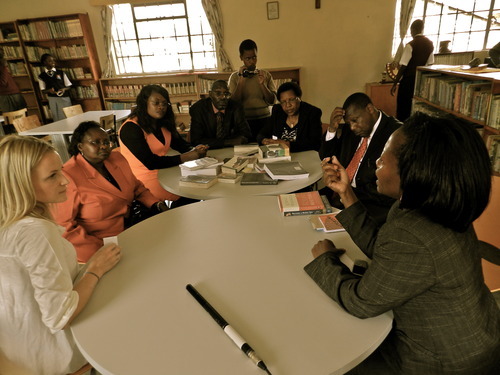
When they arrived, it did not come as a surprise to me that our guests were particularly interested in the Smart Board – this technology is undoubtedly new to Kenya, particularly government schools. Even having gone to one of the best girls’ schools in Canada and graduating high school only 8 years ago, I wasn’t even exposed to them. What has made the one at Precious Blood such a crowd pleaser is that it came with software specifically designed to complement the Kenyan secondary school curriculum.
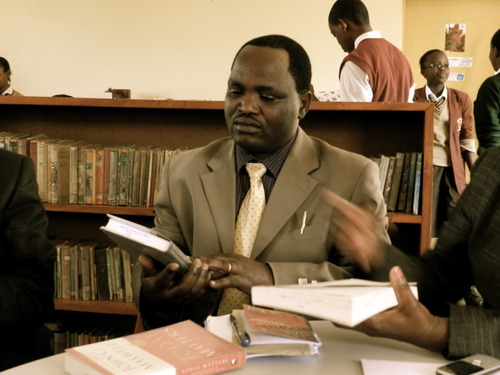
(the District Education Officer inspecting one of the books donated)
What was such a happy surprise for me however, was the extent to which they were also captivated by the selection of books we donated. When the guests arrived I explained the breakdown of our approached and book selections. I described how the Foundation paid particular attention to non-fiction books relating African, and more specifically Kenyan history, identity, and culture. And yet, on behalf of the guests no special attention was paid to that aspect of the donation until the books were actually seen – in the flesh so to speak when I pulled several titles from the shelves as examples. It was then that the excitement really began to build.
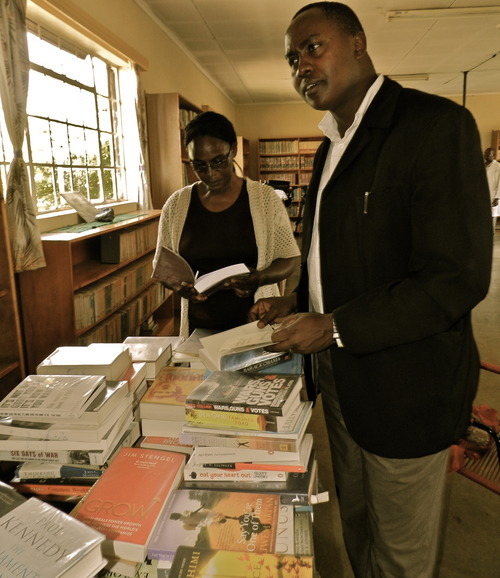
(Precious Blood History and Swahili teacher going through some of the donated books)
This had also happened with the Precious Blood girls and teachers themselves. It was only after handling and viewing the titles that the teachers commented again and again how impressed (and surprised) they were with the quality of the book titles and subject matter. We had geography and history teachers telling us how their department, and the lessons they teach, will really benefit from the titles. Over and over again they expressed their surprise at how the Foundation had ‘really thought’ about them.
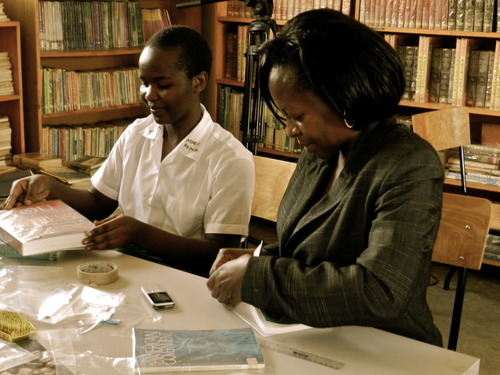
(Jacinta Akatsa, Principal of Precious Blood, was so interested in the book titles she joined the girls covering them so she could see as many as possible)
After my inquiring, they admitted that even though they knew we were donating new books, they had just assumed that it would be like any other book donation to schools in Africa – old, often foreign, and academically irrelevant to the current curriculum. This really drove home for me the disillusionment that many here hold towards NGO’s and donations – even though we consulted with the school for months before picking the titles, many teachers and students still did not think their input would be reflected in the donation – this only changed when they saw the books themselves.
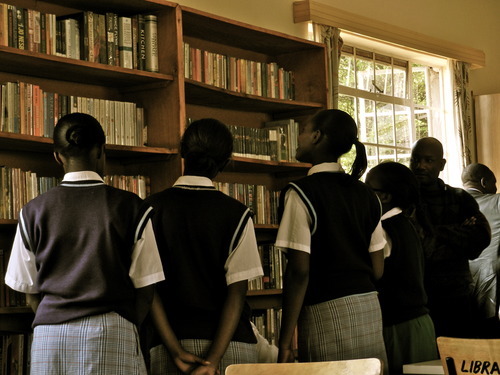
(visiting students going through the books)
The visiting principals expressed a wish for their teachers to be able to access the Precious Blood library so that they can also have a chance to read some of the books we donated, to apply to their lessons. Teachers and students alike were also inquiring if they could use the library during the holiday – something that Jacinta, the principal, told me has never happened before – not even with our previous book donations, which were predominantly novels and new york times non fiction.